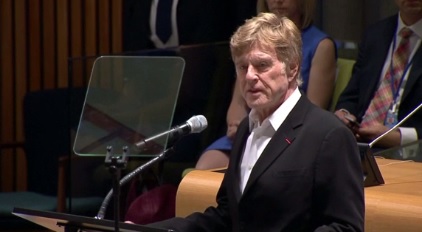Commentary: Northeast Pipeline Blockade Delivers Trifecta of Bad Outcomes

Will this presidential election be the most important in American history?
Commentary by Dan Byers “Northeast Pipeline Blockade Delivers Trifecta of Bad Outcomes: Dependence on Fuel Oil, Higher Prices, and More Foreign Energy Imports” originally published at RealClearEnergy.com
Earlier this month, a group of senators primarily representing Northeastern states called on Energy Secretary Jennifer Granholm to halt permits for new liquified natural gas (LNG) export facilities based on concerns that they harm U.S. energy consumers.
The timing is noteworthy given the importance of U.S. energy exports to European allies seeking to diversify energy supplies in the face of escalating tensions with Russia, on whom they depend for nearly 40% of their gas. We recently explored the international trade and energy security aspects of these tensions, but in light of the senators concerns, it also makes sense to take a closer look at domestic factors impacting energy prices and their relationship to growing natural gas exports.
Spoiler alert: there is no question that the Northeastern U.S. pays more for energy than the rest of the country (and has for years), but the driving factor isn’t surging exports to other countries. Rather, it is opposition to pipeline infrastructure that has left the region unable to access sufficient supplies of affordable energy.
Simply put, natural gas pipelines that could bring abundant gas supplies from Appalachia’s Marcellus shale region have been blocked at every turn over many years. This has major implications for energy markets in New England, especially in winter. When cold weather strikes, demand for both electricity and heating go up in concert. New England is highly dependent upon natural gas for both, and without sufficient supplies to meet demand, grid operators must turn to fuel oil (which does not face infrastructure constraints) to keep the lights on.
While the weather so far this year hasn’t been particularly brutal, generation from fuel oil still accounted for more than 11 percent of the region’s electricity in January—a 13-year high. Fuel oil is literally and figuratively near the bottom of the barrel when it comes to pollution. Per unit of electricity delivered, carbon dioxide emissions from fuel oil are 57 percent higher than from natural gas. With adequate infrastructure to replace that fuel oil generation with natural gas, CO2 emissions could have been reduced by 580,000 tons in January alone. For perspective, that represents the equivalent of taking 126,000 cars off the road for a year!

The natural gas pipeline blockade also makes energy more expensive. All six New England states rank among the top ten highest electricity rates in the continental U.S.. Average power prices in Connecticut, which has the dubious honor of edging out California for the most expensive electricity in the lower 48—are 80% higher than the national average. Those figures are based on 2020 data, and only likely to worsen going forward.
In late January, benchmark natural gas prices delivered to Boston reached $28 per million British thermal unit (MMBtu). On an energy equivalent basis, this corresponds to paying $162 for a barrel of oil. It’s also more than 500% more expensive than one could pay for natural gas just 200 miles away in Pennsylvania’s Marcellus basin. Moreover, prices averaged $20.55 per MMBtu ($119 per barrel of oil) over the entire month, indicating that the eye-watering prices were not confined to just a short-lived spike.
The economic ripple effects are significant. Natural gas accounts for 53% of year-round electricity generation in New England (compared to just 15% in 2000) and a similar fraction of home heating demand, so when prices stay elevated, the regional economy suffers greatly. With New England’s relative dependence on oil for electricity and heat, also tops in the country, oil prices spiking to the highest in eight years adds further pain. Adding insult to injury, it’s important to remember that higher energy prices act as a regressive tax, disproportionately burdening poorer households and those on fixed incomes.
It’s also well understood that demand begets supply, which in turn can lower prices. In a report just last week, the Energy Information Administration (EIA) cited pipeline constraints in the Appalachian Basin as a primary reason that energy producers have limited their response to rising prices.
Of course, high energy prices are what prompted scrutiny of energy exports in the first place, so the question should be asked—would blocking U.S. LNG lower prices for New Englanders? The answer here is decidedly no, and the root cause is once again pipeline constraints.
As New England grid expert Meredith Angwin testified in a February 1st hearing before the Connecticut legislature:
“We use more natural gas as we close off coal plants or nuclear plants…and we don’t have new pipelines, so we ended up more reliant on LNG deliveries. We’re on an international market for LNG, we have to pay a lot of money for it, and we can be outbid any day by Asia or Europe.”
In other words, the lack of pipeline capacity makes New England increasingly dependent on global gas markets, and with the U.S. now leading the world in LNG exports, restrictions on those exports would only drive global prices higher, not lower.
It’s also worth noting that a ban on LNG exports wouldn’t increase the amount of U.S. LNG available to the Northeast. That’s because the century-old Jones Act—which limits trade between U.S. ports to American-flagged ships only—effectively prohibits LNG imports from the Gulf Coast. Instead, New England pays top dollar for cargoes from Trinidad, Nigeria, and occasionally even Russia.
Finally, a separate EIA report is forecasting that overall domestic natural gas prices will remain flat in 2022 and 2023 even as exports rise, reflecting American producers’ ability to meet domestic demand while also delivering growing supplies to allies and partners around the world. It is certainly true that New England could be an outlier in this forecast, but only because of its inability to readily access plentiful U.S. production less than 200 miles away in Pennsylvania.
So while we agree with the senators concerns about high energy prices, a holistic look at the situation reveals that LNG is simply not the problem. Instead, the most daunting energy challenges facing the Northeast trace back to the same solution. If we want to be less dependent on energy imports, we should build more pipelines. If we want to burn less dirty fuel oil, we should build more pipelines. And if we want lower prices, the answer isn’t less exports, it’s more pipelines.
__________
Dan Byers is vice president for policy at the U.S. Chamber of Commerce’s Global Energy Institute.








